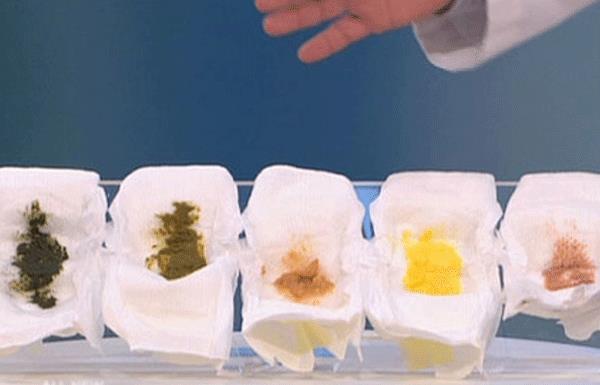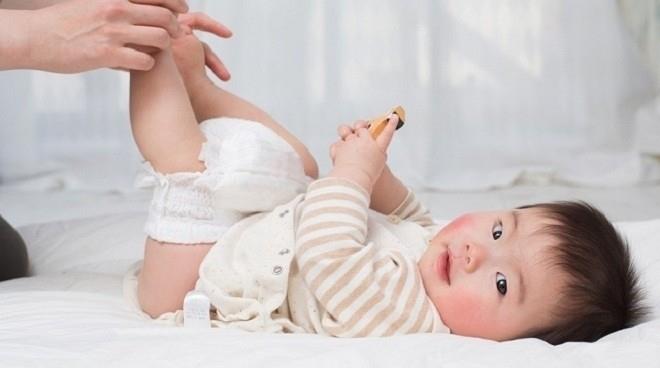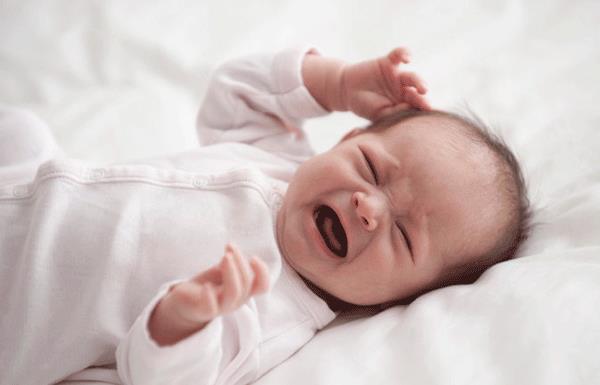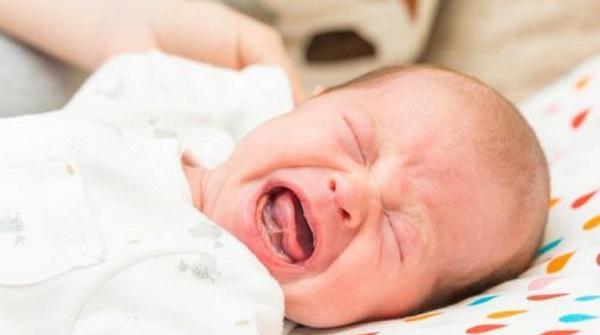The first few months after giving birth, babies keep "whispering" all day. The situation of infants going out with prolonged foam always makes mothers restless.
content
Causes babies to pass out foam
Your baby's digestive system is not complete
Intestinal infections
Milk allergy
Malabsorption syndrome
Mother's diet
A newborn baby's foamy bowel condition
Repeatedly go out foam and fussy
There is foam when going out but still breastfeed normally
Newborn babies have foam and mucus
Newborn babies go out bubbling
Baby 1 month old baby comes out foam
How to treat newborn babies with foam and mucus diarrhea
The first month after birth, babies often have bowel movements after each feed. Babies usually go 5-10 times a day, with thick, dark yellow stools and good weight gain are nothing to worry about. But when babies who pass out with foam and mucus plus some mucus are most likely having digestive problems.
Causes babies to pass out foam
There are many causes of a baby having foam . The following are common causes of this phenomenon:
Your baby's digestive system is not complete
The intestinal and urinary functions of newborn babies have not yet developed completely, thus leading to the situation where babies pass out with yellow foam. If the baby's stool is slightly loose, foamy, and mucus, it's likely that the baby's intestines are irritated and the baby hasn't fully digested the sugar in the milk.
Intestinal infections
Bacteria such as Salmonella, Shigella, Staphylococcus, Campylobacter or E. coli can also cause a baby to pass foamy stools with diarrhea .
If severe, the baby may have cramps, fever. Parents should take the baby to the doctor for medical examination and treatment.

Newborn feces are a relatively accurate “measure” of health
Milk allergy
Newborn babies may experience a protein allergy in milk leading to foamy bowel movements accompanied by diarrhea. In addition, the baby may experience the following symptoms: abdominal pain, blood in the stool, infant's feces foam ...
In more severe cases, an allergy can also cause hives, swelling and difficulty breathing.
Malabsorption syndrome
Babies with malabsorption syndrome also lead to foamy bowel movements because nutrients are not fully digested.
Mother's diet
If your baby is breastfeeding, the mother's diet will also affect the baby. If mothers eat laxative foods, they can make babies pass foamy.
A newborn baby's foamy bowel condition
At the beginning, when there are signs of an abnormality in the intestinal tract, the baby has loose, foamy stools. Now there are 5 cases:
Repeatedly go out foam and fussy
When an infant's feces are foamy and the baby is constantly crying, feeding little or skipping feeding, there are signs of losing weight or not gaining weight for a long time. This shows that the child is showing signs of an intestinal infection or digestive disorder.
Some specific causes have been identified:
Children with intestinal infections
Your baby is allergic to formula and dairy products
Infants have malabsorption syndrome
Mothers are breastfeeding but using enema or laxative foods
Infants have a cold stomach
In this case, mothers should not arbitrarily buy drugs or use any folk tips to treat this children's disease because it can backfire. The best way is to send children to medical facilities for prompt examination and guidance and support for treatment.

Mother needs to regularly monitor the baby's stool to know the health status of the baby
There is foam when going out but still breastfeed normally
The fecal nature of the child has changed, but the baby is breastfed normally, without fussing or increasing neediness, it is not worrying. There has not been any specific cause yet.
The mother just needs to take good care of the baby and pay attention to her own diet, the condition of the newborn going out of foam will quickly disappear.
Newborn babies have foam and mucus
This classification has 3 health cases of the baby:
The baby's feces are dark green in color, small in quantity, have sticky mucus, and when they suckle or suckle, babies often cry because they are hungry. In this case, mothers need to breastfeed more or increase the appropriate amount of milk for the baby to get enough and full.
Hard stools, mucus or blood on the outside are signs of constipation .
Young feces like pea, green and mucus-colored due to infection in the intestine.

If your baby is having a lot of bowel movements and is fussy, chances are there is a intestinal problem
Newborn babies go out bubbling
You need to know that the rumbling sound in babies and children is normal and not as uncomfortable as I think.
Only when the baby is constantly fussy, it could be due to a blockage of gas in the folds of the intestine or somewhere in the digestive tract.
The cause may be due to the mother's diet is high in grease, indigestible food (when the baby is exclusively breastfed), or the mother breastfed the baby incorrectly, not ensuring hygiene ...
To limit this situation, mothers should change the daily diet:
Limit food borne slightly like tomatoes, oranges, cabbage ... Do not eat hot spicy foods, strong flavors.
It is advisable to breastfeed your baby exclusively in the first 6 months because the baby's digestive system is weak at this time and will not tolerate the lactose in formula.
When a newborn has a tummy, just change the baby's position by placing the baby's head on his shoulder and patting his back to get heartburn, or placing the baby on his back, knees bent, and moving each child's legs up and down.
Baby 1 month old baby comes out foam
In the first month, with breastfed babies, will have a bowel movement about 5-6 times / day, with cauliflower stools. If a baby is formula fed, he or she has to defecate 1-3 times less / day. The stools are usually pliable and lighter in color, and the smell is worse.
If a newborn baby has foam, looser stools and mucus, it is likely that the intestinal tract is being irritated due to not fully digesting the sugar in the milk.
Because the baby is still young, the mother should not self-treat with folk tricks, but should re-examine the child at the gastroenterologist for the best specific treatment direction.

Babies with effervescent diarrhea are often caused by the digestive system
How to treat newborn babies with foam and mucus diarrhea
For children who are breastfed, mothers should adjust their proper nutrition, eat lots of vegetables, roots, fruits, yogurt, coconut water ... to increase the amount of minerals and vitamins needed for children.
At the same time, mothers need to limit fast and fatty foods that are not healthy.
For formula-fed babies, babies may experience foamy diarrhea 2 to 3 days when they first drink because the digestive system takes time to adapt.
However, if the baby's foaming persists, the mother needs to change another milk brand. Mothers should choose lactose-free milk for the baby to digest.

Baby's 6 stools colors are characteristic parents need to know In the first days after birth, newborn's stool reflects the baby's health. The color of stool and the accompanying smell tell the mother what the baby is sick.
When it is discovered that a baby has effervescent diarrhea, the most important thing is that the mother must rehydrate the baby by breastfeeding several times a day.
After each go out, the mother gave the baby 50-100ml oresol . In addition to breastmilk and formula, mothers can give their baby more electrolyte replacement to make sure they don't get dehydrated.
However, it is important to consult a doctor if you want to give water to your newborn baby. In the following cases, mothers need to bring their children to the doctor for examination:
2 days effervescent diarrhea does not go away
There is blood in the stool.
The baby is tired, stops eating.
Baby has a high fever.
Your baby has signs of severe dehydration.
The phenomenon of babies passing out with foam problems or not depends on the number of movements and symptoms of the baby. If you are worried, the best mother to take the baby to the doctor, not arbitrarily cure tips.
















